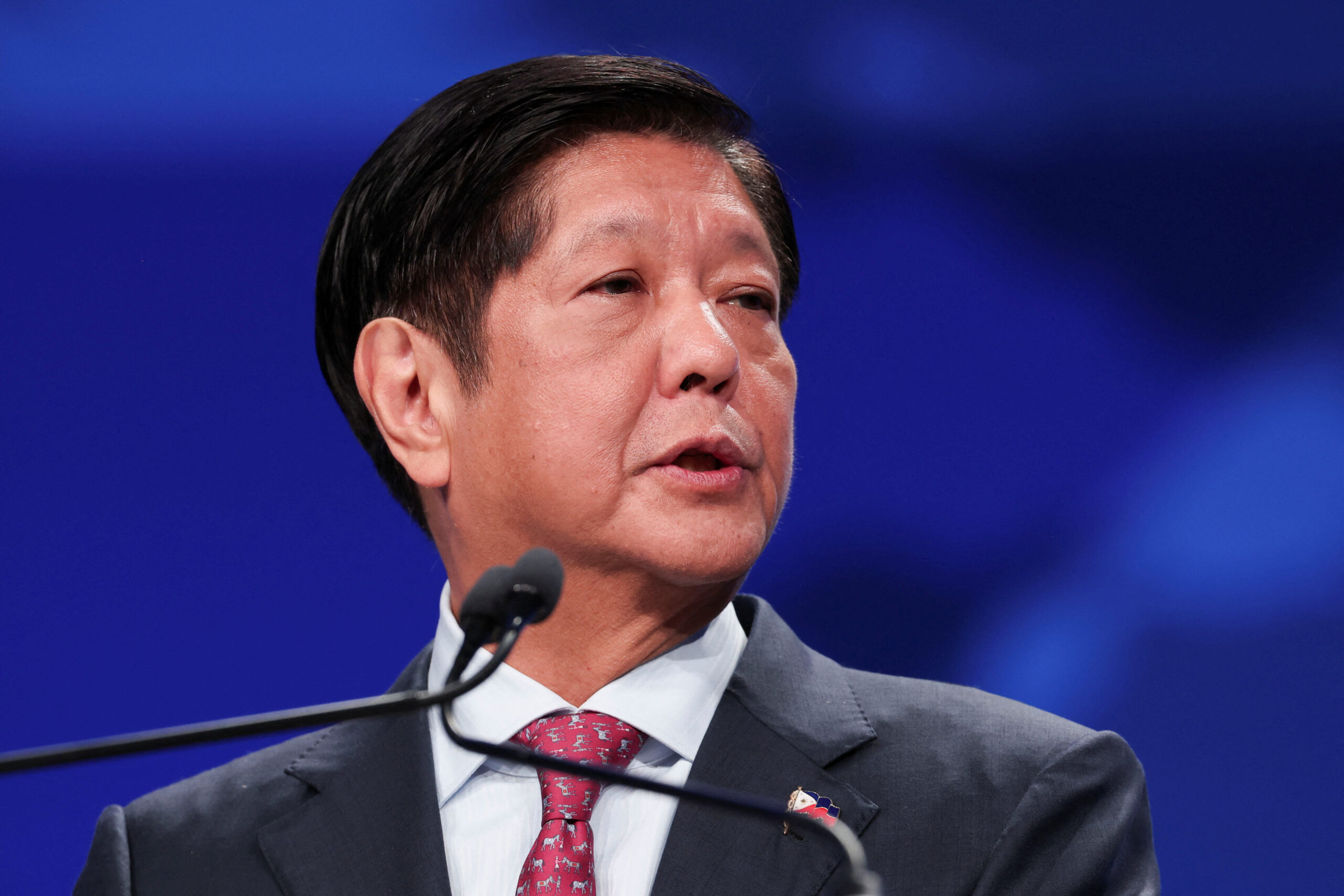Marcos to tackle trade, labor, energy, climate change in Germany visit

FILE PHOTO: Ferdinand Marcos Jr. President of the Philippines speaks at the Asia-Pacific Economic Cooperation (Apec) CEO Summit in San Francisco, California, United States, November 15, 2023. REUTERS/Carlos Barria/File Photo
BERLIN – Apart from expanded maritime trade, President Ferdinand Marcos Jr. and German Chancellor Olaf Scholz will tackle labor opportunities, climate change, and renewable energy during the former’s working visit here this week.
Philippine ambassador to Germany Irene Susan Natividad said these issues were “very important, mutual shared interests” to the two nations.
“I think the key to any bilateral relation is mutual or shared interests and values, and so we have several with Germany that can complement each other,” she said in an interview with Radio Television Malacañang here.
“Climate and renewable energy will be part of their discussions since this is another issue that is very important for both the Philippines and Germany,” Natividad added.
She noted that the two nations now have joint consultation platforms not just on political, economic, and labor but even on climate change issues.
“These joint consultation platforms provide us a mechanism to discuss and build on existing relations that have spanned 70 years and identify new areas of cooperation based on shared objectives,” Natividad said.
READ: PH eyes expanded defense agreements with Germany
The Philippines and Germany also share a mutual interest in their commitment to a rules-based international order, development cooperation, and peace and development projects in Mindanao.
Natividad described Marcos’ visit – the first by a Philippine president in 10 years after then President Benigno S. Aquino III’s visit here in 2014 – as a “business-focused, business-oriented working visit.”
“He will address the German business community and inform them of all the reforms that the administration has undertaken to attract foreign investments into the country,” she said.
Since Germany has a shortage in its workforce, the two leaders will likewise discuss ways to address the issue that may potentially mean more job opportunities for Filipinos.
“How can we help each other? The Philippines, how to help Germany address that labor shortage. And for Germany to assure us that the workers we will be sending here will be treated fairly, provided all the benefits and rights they should enjoy just like any other German national or other nationalities working in Germany,” Natividad said.
READ: Marcos leaving for Germany, Czech Republic next week
The Philippines can also tap into Germany’s status as a “powerhouse” in a diverse array of industries, not just the manufacture of automobiles.
“How can the Philippines help German industries by supplying whatever materials or products they need? Germany is a powerhouse in terms of innovation, manufacturing, not just automobiles but a lot of other products. We can tap into that,” the envoy added.
As to the issue of the West Philippine Sea dispute, Natividad stressed that Germany “has always been one of the first countries to call out aggressive actions and dangerous maneuvers and incidents in our seas.”
Marcos is expected to arrive in Berlin on Monday night for a two-day working visit here upon Scholz’s invitation.
Aside from a bilateral meeting with the German Chancellor, the President will attend a business forum of major companies in renewable energy, manufacturing, healthcare, aerospace, and innovation interested in investing in the Philippines.
Further, government-to-government agreements will be signed during Marcos’ brief visit – a joint declaration of intent to strengthen the Philippines and Germany’s cooperation in the maritime sector by facilitating maritime trade and mobility of commercial vessels.
The Technical Education and Skills Development Authority and the German Federal Institute for Vocational Education and Training will also sign a cooperation program to continue their partnership on technical and vocational education and trading.
Marcos will likewise meet with the Filipino community in Berlin. Around 35,000 Filipinos are working in Germany’s healthcare, information technology, and hotel and hospitality industries.
After his commitments in Berlin, Marcos will fly to Prague, Czech Republic for a two-day state visit upon the invitation of Czech President Petr Pavel.